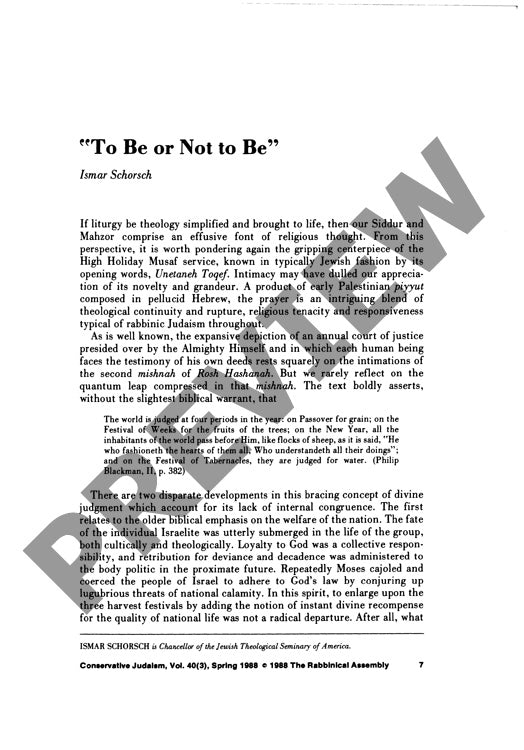To Be or Not to Be
Couldn't load pickup availability
A profound theological rupture occurred when the Mishnah introduced annual divine judgment of individuals - a concept without biblical precedent that transformed Judaism's understanding of moral responsibility. The *Unetaneh Toqef* prayer, centerpiece of High Holiday liturgy, embodies this tension between collective and individual accountability. Through textual and historical analysis of early Palestinian *piyyut* and Mishnah Rosh Hashanah, comparative theological methodology reveals how this liturgical work wrestles with two competing frameworks: the biblical model of collective divine retribution and the rabbinical innovation of personal moral judgment. As articulated by Jeremiah and Ezekiel, this shift represented a quantum leap from national welfare to individual spiritual accounting. The prayer's distinctive approach to existential questions maintains a characteristically Jewish "this-worldly" orientation, confronting mortality through concrete awareness rather than metaphysical speculation. Such theological positioning preserves biblical sobriety while accommodating rabbinic innovation, ultimately emphasizing the ennoblement of earthly existence - demonstrating rabbinic Judaism's capacity to blend religious tenacity with theological responsiveness.

More Information
-
Physical Description
-
Publication Information
Published 1988
ISBN
-
Publication Credits
Ismar Schorsch

